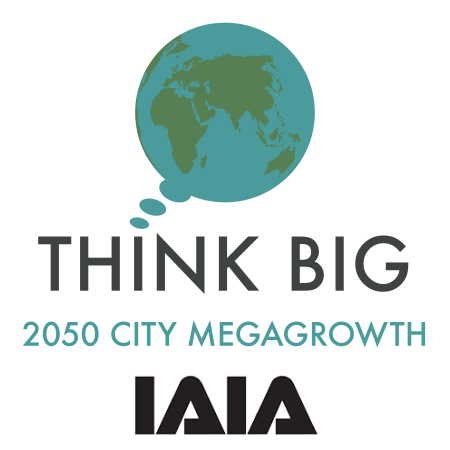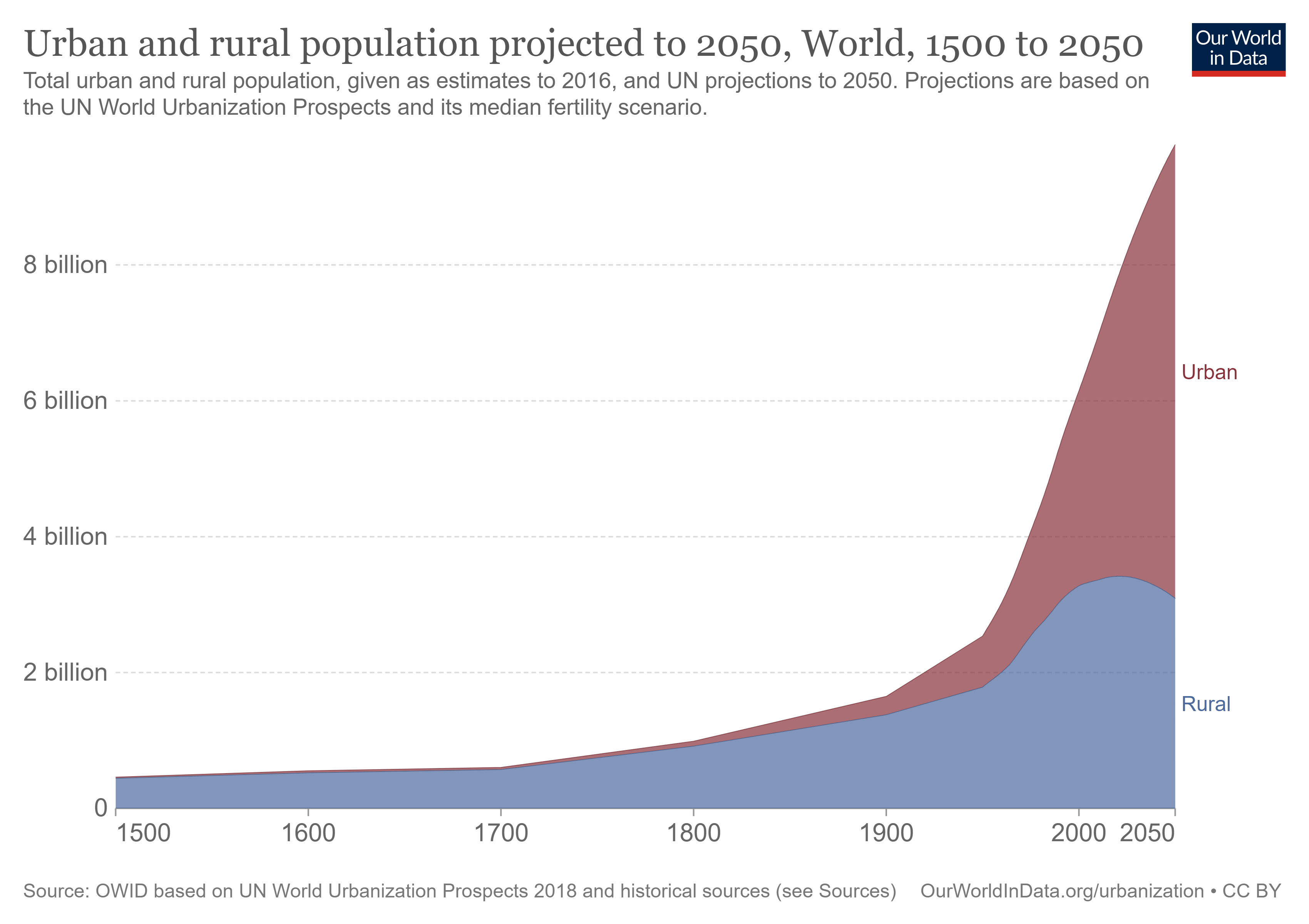
Many scientists assessing the impacts on the earth’s carrying capacity and global planetary boundaries from human activities have concluded that there is great urgency to find and select among best alternatives to address potentially catastrophic impacts on earth and human systems.
Policymakers and the public urgently need to be able to select among the best environmentally and socially sound options to manage these impacts.
In response, the International Association for Impact Assessment (IAIA), in collaboration with Cities Alliance and ISOCARP, has organized a series of presentations supporting efforts to address looming environmental and social impacts affecting the world’s cities to 2050 and beyond.
Of the 8 billion of us on Earth:

Think Big 2050 City Megagrowth consists of multiple recorded panels. The first two were made available over a one-month period, culminating in a live Q&A session with available presenters on March 27. Additional presentations will be released in July.
This forum is the second of our Think Big series. Check out our first Think Big forum here.
Speakers
Speakers
The first live forum is moderated by Heather M. H. Goldstone of Woodwell Climate Change Research Center, with the participation of the speakers from Think Big Panel 1 and Panel 2.
Speakers
Speakers
The second live forum will be moderated by Heather M. H. Goldstone of Woodwell Climate Change Research Center, with the participation of the speakers from Think Big Panel 4 and Panel 5
Moderator
Heather M. H. Goldstone of Woodwell Climate Change Research Center. Heather is a science communicator working to put climate science in the hands of those in a position to make real-world change. She holds a Ph.D. in ocean science from M.I.T. and Woods Hole Oceanographic Institution, and she brings to her work a decade of experience in research and another decade in journalism. She is an award-winning journalist who founded and hosted Living Lab Radio on Boston Public Radio, a weekly live-interview show about science and society, and also hosted Climatide, a US National Public Radio blog exploring the impacts of climate change on coastal communities. Her research has been featured on:
Additional Background
Of great concern to planners and impact assessment specialists is that conservatively 900 million people live in slums, but most experts agree that including different types of informal settlements, the number goes up to 1.6 billion – which represents 1/4 of the world’s urban population. Stemming urban poverty is critical to addressing climate change and other global environmental and social impacts, which is a focus of Cities Alliance’s work and strategy. Notably, there are up to a half billion youth living in informal settlements with inadequate and hazardous water and sanitation, poor health and nutrition, little or no access to education, and poor or non-existent employment opportunities. Addressing climate change and other global commons issues must at the same time come to grips with this level of urban poverty, especially among youth.
Simply defined, impact assessment is the process of identifying the future consequences of a current or proposed action. As an association of interdisciplinary environmental and social impact assessment professionals, IAIA is uniquely positioned to support the assessment of alternative strategies for solving current issues of global and local significance. We are convinced that equipping mayors and urban policymakers with sound urban planning and impact assessment processes (with full public engagement), will help lead the transition to ‘true’ sustainability.
IAIA’s Climate Change Section has organized the forum, specifically the Section’s Technical Advisory Group tasked to engage with urban planners and decision makers. The Climate Change Section also has a broader set of activities for which we seek your participation and support as described in Selected Elements under IAIA’s Climate Change Action Plan in the IAIA Climate Change Status Report Sep 22 – May 23.